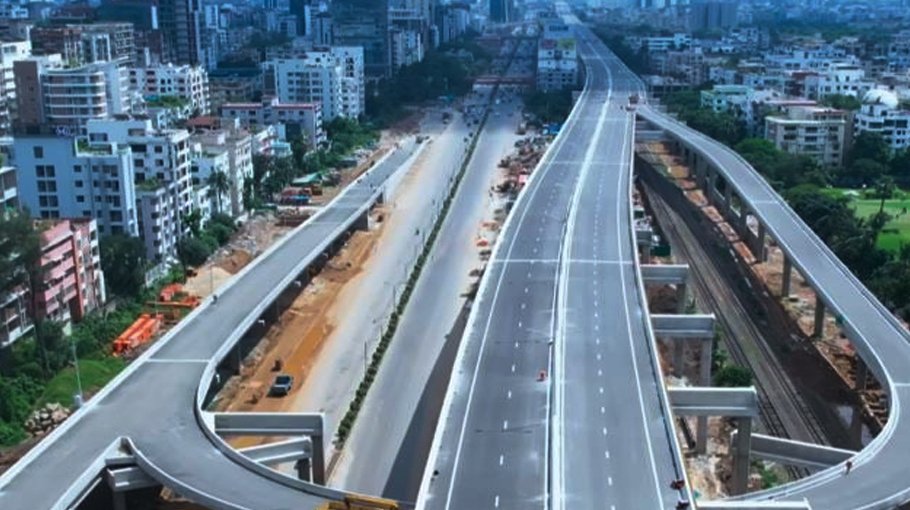Implementation of PPP projects spectacular

Although it has been only one era, Public Private Partnership (PPP) method in Bangladesh has shown tremendous success in project implementation and people have already started getting benefits from different projects under it.
Currently, Bangladesh has a robust pipeline of 80 projects spanning various sectors such as transportation, water, health, IT, and ports, with an estimated investment value of $42.02 billion.
Of these projects, some schemes are already operational, some are partially operational, some are under construction, a number of the projects are in the procurement stage while a few are undergoing feasibility studies.
Talking to BSS, Chief Executive Officer (Secretary) of PPP Dr Md Mushfiqur Rahman said currently, two units of hemodialysis centres of a PPP project in the National Institute of Kidney Diseases and Urology (NIKDU) and Chattogram Medical College and Hospital (CMCH) under the Ministry of Health and Family Welfare are providing kidney patients with dialysis services, which have already caught the attention of many people.
Alongside, he mentioned, two projects are operating partially, namely Dhaka Elevated Expressway and Purbachal Water Supply.
These projects have already put a positive impact on the country's infrastructure and services, he added.
He informed that there are also six projects in the construction stage, 10 projects in the Condition Precedent (CP) stage, 17 projects in the procurement stage, and the feasibility studies of 28 others are in progress.
However, he said, the PPP Authority is implementing mega projects that are strategically important for the development of the nation as a whole.
"A few notable projects include Dhaka Bypass Toll Road, Gabtoli-Savar-Nabinagar PPP Road, Outer Ring Road, Chattogram-Cox's Bazar Highway, Dhaka-Joydevpur-Mymensingh Road, Circular Railway Line around Dhaka City, Bay Terminal and Patenga Container Terminal at Chittagong, Sewerage, Drainage System & Solid Waste Management System in Purbachal New Town, Khulna Khan Jahan Ali Airport, Info-Sarkar-Phase-3, 2nd Padma Multipurpose Bridge at Paturia-Goalundo, O&M of Mass Rapid Transit (MRT) Line-2, Multimodal Hub at Kamalapur and Biman Bandar Railway Station and Dhaka East West Elevated Expressway," he added.
The PPP authority in Bangladesh traces its roots back to the early 2010s when the government recognized the need for private sector participation in infrastructure development to meet the nation's growing demands. In 2010, a dedicated PPP policy was introduced, setting the stage for a more structured approach to engaging with the private sector. This policy laid the foundation for the PPP Act of 2015, which formalized the framework for public-private partnerships.
Since its inception, the PPP Authority has been actively engaged in identifying, prioritizing, and selecting potential PPP projects. It has been instrumental in formulating guidelines, rules, and policies to create conducive environment for both the public and private sectors to work together towards the common goal of propelling Bangladesh towards development.
Mushfiqur Rahman said Bangladesh has set ambitious goals, aiming to achieve the SDGs by 2030 and transition into a developed country by 2041, in alignment with Vision 2041.
To realize these objectives, he said, the PPP Authority has become a cornerstone of Bangladesh's development strategy.
"It has focused on critical sectors such as power, energy, transport, tourism, ICT, education, housing, agriculture, and health through PPPs, as reflected in the Eighth Five-Year Plan (8FYP). Private sector involvement is essential to bridge the investment gap and meet infrastructure needs, making PPPs a key driver of national development," he added.
Describing the regularity framework of PPP, Rahman said the PPP Act of 2015, along with various guidelines and rules, ensures a standardized and internationally recognized approach to public-private partnerships.
"Some of these guidelines include the Procurement Guidelines for PPP Projects (2018), Guidelines for Unsolicited Proposals (2018), G2G Policy (2017), Rules for National Priority Projects (2018), and Rules for Viability Gap Funding (VGF) for PPP Projects (2018)," he added.
Responding to a question, Rahman informed that the government of Bangladesh has introduced several incentives to attract private investors to participate in PPP projects.
"These incentives include: Income Tax Exemption, Expatriate Tax Exemption, VAT Exemption, Security Exchange Commission Exemption and Viability Gap Financing," he added.
With Perspective Plan 2041 and the Delta Plan, the country aims to continue its development trajectory.
He said the ongoing trade war worldwide has also created an opportunity for Bangladesh to attract Foreign Direct Investment (FDI).
"The government's policies to encourage foreign and local investments, as well as the commitment to raise private investment to 27.4 percent of GDP by 2025, show a proactive stance towards improving the investment climate," he added.
Over the last 15 years, he said, Bangladesh has made remarkable progress in achieving its development goals through the PPP program.
The PPP Authority has been at the forefront of these efforts, ensuring that projects are well-conceived, transparent, and attractive to private investors, he added.
He said the country's commitment to attain SDGs by 2030 and Vision 2041 holds immense promise, but it necessitates effective public-private partnerships.
To sustain and build upon the progress, he said, the government must continue to improve the investment climate, streamline project implementation, and uphold transparency and accountability.
With a steadfast commitment to addressing challenges and implementing reforms, Bangladesh can build a brighter future through successful PPPs, he added.
Former Governor of Bangladesh Bank (BB) Dr Atiur Rahman urged the authorities concerned to prepare the feasibility study report perfectly for making the PPP method more effective in project implementation.
"Through PPP method, private sector brings expertise, innovation, and management efficiencies in public projects which quite often result in reducing the cost of service provision while improving its quality," he added.
He, however, said PPP in Bangladesh is the brainchild of Prime Minister Sheikh Hasina. "The Government of Bangladesh has prioritized the PPP programme as one of the key initiatives for increasing investment in infrastructure and supporting the realisation of Prime Minister Sheikh Hasina's Vision 2021 and 2041," he added.



